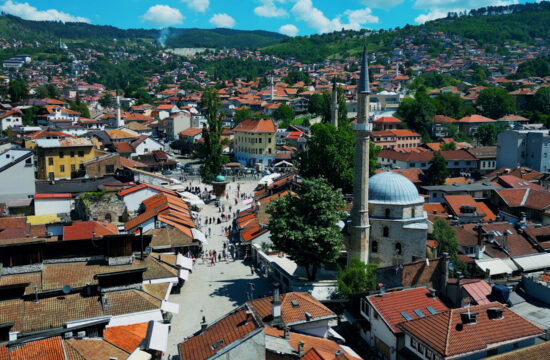
Croatia is a warning to Western Balkan countries that European Union membership will not change emigration trends, Agence France-Presse says.
ince joining the EU in 2013, when its population was a little over four million, Croatia has lost almost 10% of its inhabitants, according to preliminary results of the latest census.
The UN estimates that Croatia's population will drop to 2.5 million by the end of the century.
Demographers warn that the small population will not be able to fight off further losses.
AFP also mentions a demographic measure presented by the government last month, under which those coming back to Croatia would receive HRK 200,000 in support.
But for some parts of the country it is too late. Požega in eastern Croatia, which had a population of 80,000, has remained without more than 15% of its inhabitants in the last ten years.
“If you want young people to say, build them a house and a kindergarten,” 39-year-old Igor Čančar of the nearby Brestovac told AFP.
In North Macedonia, as in a large part of the poor Southeast Europe, a demographic bomb is ticking due to ageing, fewer and fewer births, and mass emigration, AFP says.
In the past 20 years, North Macedonia has lost 10% of its population. According to government and World Bank data, 600,000 of its inhabitants live abroad.
Poor economic growth and a lack of investment are slowing the progress of a country which, 30 years after achieving independence, has a population of only 1.8 million.
“The spirit of young people has been systematically destroyed,” says Pero Kostadinov, mayor of Valandovo, a small town 146 km from the capital of Skopje. “The enthusiasm for fighting and staying in the country has been lost,” he adds.
In Valandovo, more than 90% of the revenue comes from agriculture, and the situation is similar across North Macedonia.
According to the preliminary results of a census conducted last September, the country has lost more than 200,000 inhabitants since 2002.
Since the break-up of Yugoslavia and becoming independent, many in North Macedonia have been hoping to join the EU and reap the benefits of membership.
However, the country's journey has been repeatedly blocked, first by Greece, as a result of which Skopje agreed to change the country's name from Macedonia to North Macedonia, and now by Bulgaria, which negates the existence of the Macedonian language.
Many have started to doubt the European perspective and those who stay in the country have an average monthly pay of €470.
The situation is similar across the Balkans. In the last 30 years, Albania has lost 1.7 million inhabitants, 37% of its population, according to government data.
Hundreds of thousands have left Serbia, too. It is estimated that up to 10,000 doctors have left in the last 20 years.
“All Western Balkan countries have been hit by emigration at different intensities,” Ilir Gedeschi, a professor of economics in Tirana, is quoted as saying by AFP. “The main reasons are economic, but they are more and more social, too.”





Kakvo je tvoje mišljenje o ovome?
Budi prvi koji će ostaviti komentar!